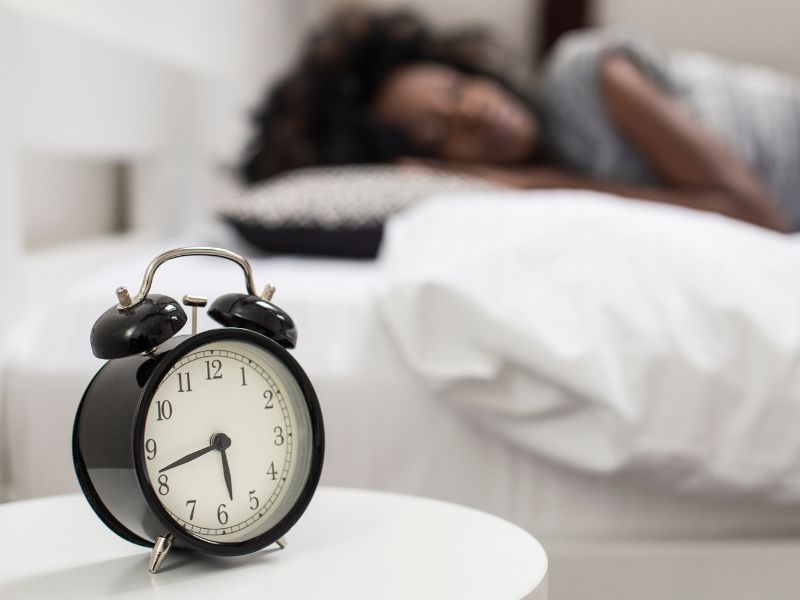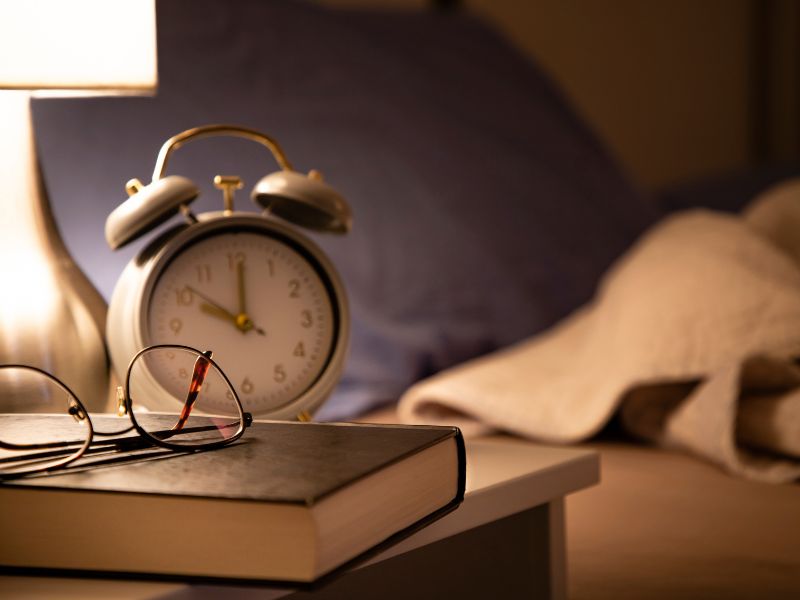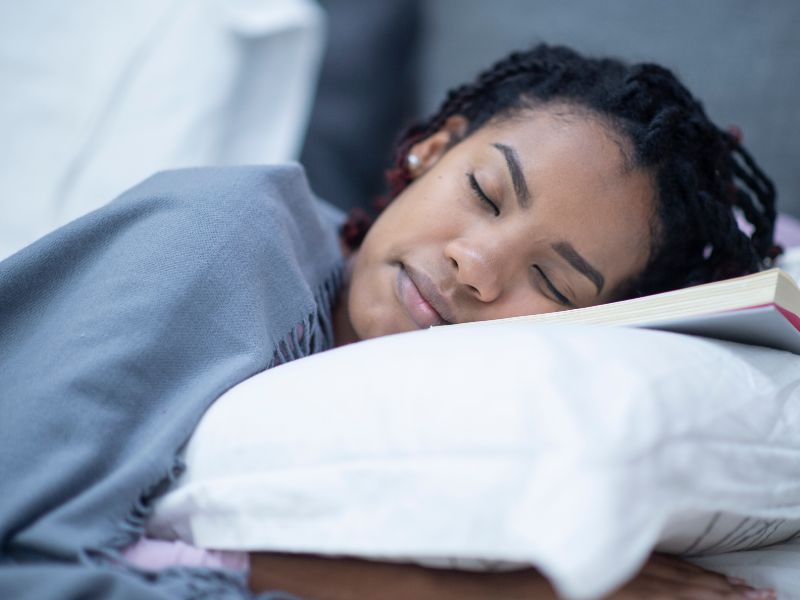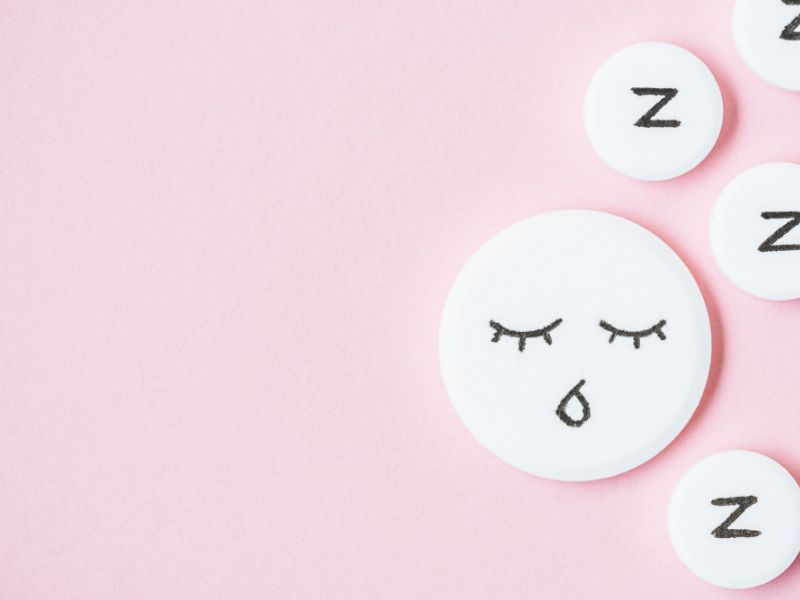Hey there! Struggling to catch some decent Z’s? You’re not alone. Tons of people have trouble getting a good night’s sleep. But don’t worry, there are simple habits you can adopt to help you sleep better. Let’s dive into 10 positive habits that can seriously improve your sleep quality. No fancy talk here – just straightforward advice to get you sleeping like a baby.

1. Stick to a Sleep Schedule
Imagine your body as a clock. It loves routine. Going to bed and waking up at the same time every day, even on weekends, can do wonders for your sleep. When you stick to a schedule, your body gets used to it and knows when it’s time to wind down and when it’s time to wake up.
Why It Works
Our bodies have something called a circadian rhythm, which is basically an internal clock that tells us when to sleep and wake. When you keep a regular schedule, your circadian rhythm stays in sync, making it easier to fall asleep and wake up naturally.
How to Start
- Set a bedtime: Choose a time to go to bed that allows for 7-9 hours of sleep.
- Wake up consistently: Even if you had a rough night, try to get up at the same time.
- Create a bedtime routine: Spend the last hour before bed doing calming activities like reading or taking a bath.

2. Create a Relaxing Bedtime Routine
Your body needs a signal that it’s time to unwind. A relaxing bedtime routine can help cue your body that sleep is coming. Think of it as a pre-sleep ritual.
Why It Works
Doing the same activities before bed every night helps program your mind and body for sleep. It’s like telling your brain, “Hey, it’s time to shut down and relax.”
How to Start
- Dim the lights: Lowering the lights signals your brain that it’s almost time for bed.
- Avoid screens: The blue light from phones and computers can mess with your sleep. Try to turn off electronics an hour before bed.
- Read a book: Pick something light and not too stimulating.
- Take a warm bath: The drop in body temperature after getting out of the bath can make you feel sleepy.

3. Watch What You Eat and Drink
What you consume can greatly affect your sleep. Eating a big meal or having too much caffeine can keep you up.
Why It Works
Certain foods and drinks can disrupt your sleep by causing indigestion or making you feel too awake. On the flip side, some foods can promote sleep.
How to Start
- Avoid big meals late at night: Try to have your dinner a few hours before bed.
- Skip the caffeine: Coffee, tea, and soda in the afternoon and evening can keep you awake.
- Limit alcohol: It might make you sleepy at first, but it can mess with your sleep cycle later.
- Try a light snack: A small snack with carbs and protein, like a piece of toast with peanut butter, can be helpful.
4. Get Comfortable
Your sleep environment plays a huge role in how well you sleep. A comfy bed, a cool room, and minimal noise can make a big difference.
Why It Works
A comfortable sleep environment helps you relax and stay asleep through the night. If your bedroom is too hot, too noisy, or uncomfortable, you’ll likely toss and turn.
How to Start
- Invest in a good mattress and pillows: Find what’s comfortable for you.
- Keep it cool: Most people sleep best in a slightly cool room (around 65°F or 18°C).
- Reduce noise: Use earplugs or a white noise machine if you live in a noisy area.
- Keep it dark: Consider blackout curtains or an eye mask if light is an issue.

5. Limit Naps
Napping can be a double-edged sword. While a short nap can be refreshing, long or irregular napping during the day can mess up your night’s sleep.
Why It Works
Napping too long or too late in the day can confuse your internal clock, making it harder to fall asleep at night.
How to Start
- Keep naps short: Aim for 20-30 minutes if you need a nap.
- Nap early: Try to nap in the early afternoon, not too close to bedtime.
6. Get Moving
Exercise is great for your overall health and can also help you sleep better. Just be mindful of when you exercise.
Why It Works
Physical activity can tire you out and help you fall asleep faster. Plus, it can reduce symptoms of insomnia and sleep apnea.
How to Start
- Exercise regularly: Aim for at least 30 minutes of moderate exercise most days.
- Timing matters: Try to finish exercising at least a few hours before bedtime. Morning or early afternoon workouts are best.
7. Manage Stress and Anxiety
Stress and anxiety can keep you up at night. Finding ways to relax your mind can make a big difference.
Why It Works
When your mind is racing, it’s hard to fall asleep. Relaxation techniques can calm your mind and prepare it for sleep.
How to Start
- Practice mindfulness: Techniques like meditation or deep breathing can help you relax.
- Write it down: Jot down your worries or to-dos before bed to get them off your mind.
- Try progressive muscle relaxation: Tense and then slowly relax each muscle group.
8. Soak Up Some Sun
Exposure to natural light during the day, especially in the morning, helps regulate your sleep-wake cycle.
Why It Works
Sunlight helps regulate your circadian rhythm. Getting enough light during the day can help you feel more awake during daylight hours and sleepy at night.
How to Start
- Get outside: Spend some time outdoors every day.
- Let in natural light: Open your blinds and let the sunshine in.
9. Be Smart About Screen Time
The blue light from screens can mess with your sleep. Reducing screen time, especially before bed, can help.
Why It Works
Blue light from phones, tablets, and computers can interfere with your body’s production of melatonin, the hormone that regulates sleep.
How to Start
- Limit screen time: Try to avoid screens at least an hour before bed.
- Use night mode: Many devices have a night mode that reduces blue light.
- Blue light glasses: Consider using blue light blocking glasses if you must use screens.
10. Create a Sleep-Inducing Environment
Little changes in your bedroom can make a big difference. Creating an environment that promotes sleep can help you get a better night’s rest.
Why It Works
Your bedroom should be a place that makes you feel relaxed and ready to sleep. The right environment can help signal to your brain that it’s time to wind down.
How to Start
- Declutter: A tidy room can be more relaxing.
- Use calming colors: Soft, neutral colors can create a soothing atmosphere.
- Add some greenery: Plants can improve air quality and add a calming vibe.
Improving your sleep quality doesn’t have to be complicated. By adopting these 10 positive habits, you can create a routine that helps you fall asleep faster, stay asleep longer, and wake up feeling refreshed. Remember, it’s all about finding what works for you and sticking to it. Sweet dreams!




